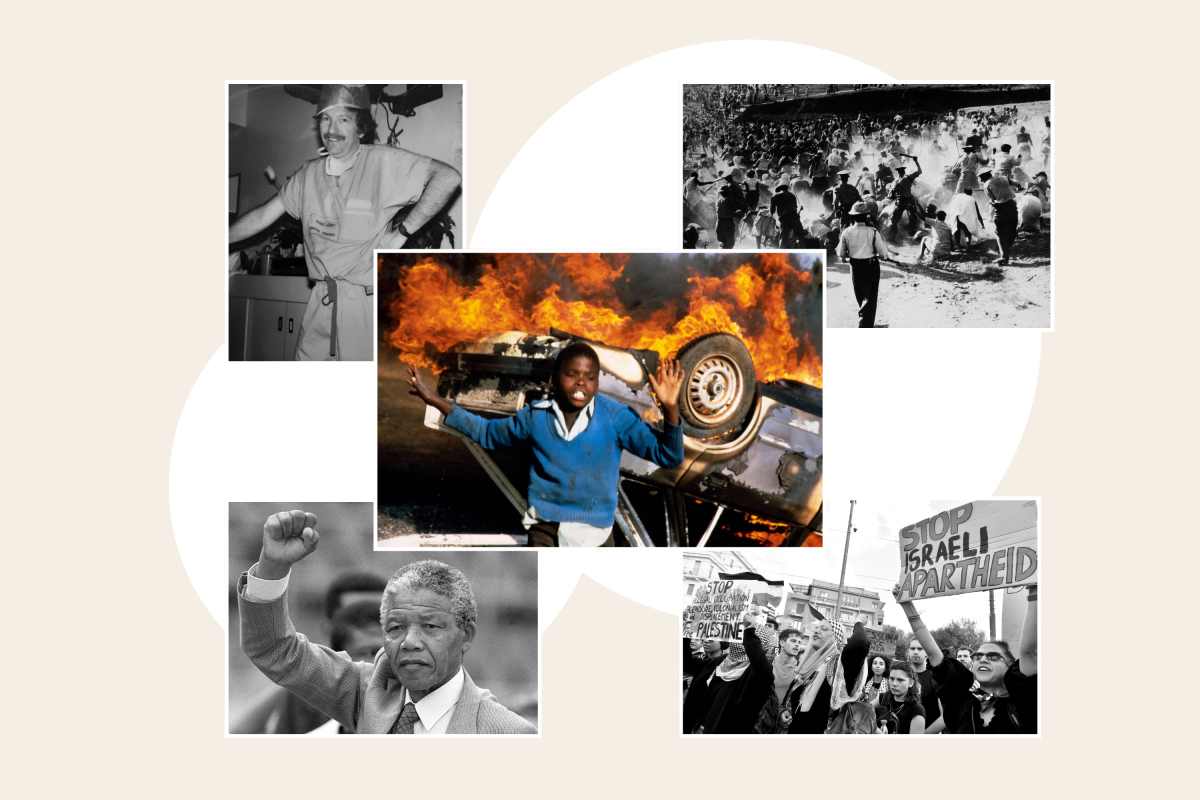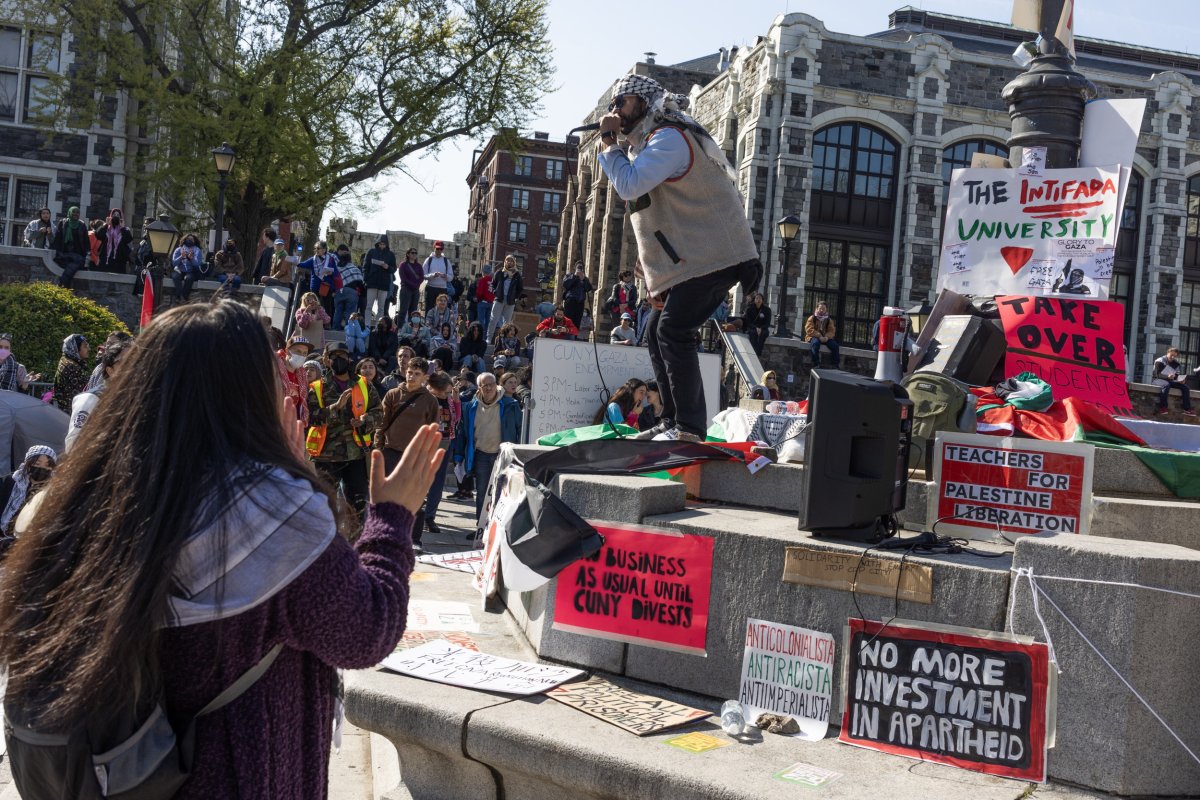In the eyes of the world, I have been considered a pariah for most of my life.
Ironic, really, for I was born on October 24, 1945, the same date as the establishment of the United Nations (UN) whose lofty ideals eschew collective opprobrium upon individuals based on skin color or religion.
Barely two years out of toddlerdom, two consequential events would determine my status over the next three-quarters of a century, for I was born in South Africa (SA) both white and Jewish.
On May 26, 1948, the Nationalist Party, playing on fears of white South Africans with their cry of "die swart gevaar"—the black danger—assumed power in South Africa and introduced arguably the most loathed political ideology in the immediate post-world war era (except for Nazism): Apartheid.
Growing up in SA, I was, like most of the 120,000 Jews, opposed to this philosophy; but the rest of the world lumped all white South Africans together as racists and subjected all to the UN-recommended sanctions in economic, cultural, and sporting spheres.
Many countries forbade entry, but even in my visits to those that permitted it I would often be harassed for what was assumed to be my political belief.

As most Americans and Europeans in those days had difficulty differentiating colonial accents, I often claimed to be an Australian or New Zealander to avoid confrontation.
It was not only the uncomfortable feeling of being a pariah that plagued me, but also the impotent guilt of not doing more to protest against the SA government's harsh treatment of Blacks.
I still reflect on attending my first post-mortem while a medical student in Cape Town as the first stirrings of my decision to emigrate.
The deceased, a blonde female in her sixties, lay exposed, and while I was adjusting to my squeamishness, a dour Scot professor ambled in and without a glance at us brusquely ordered the non-white students to vacate for it was illegal for them to witness a post-mortem on a white female.
To my everlasting discredit, I remained silent as my fellow Black students trooped out. The prudence of my tight-lipped non-protest avoided possible termination from medical school, or worse, was validated some years later during my pediatric internship.
Groote Schuur Hospital, made famous by the first heart transplant, had white (E1) and non-white (E4) wings separated by a short passage.
On call one night I needed to admit a desperately ill black child to E4. While every bed in that ward was occupied, some with two children, the white ward was barely 50 percent full.
I would never have considered admitting the child to the white side, but I did push an empty bed from E1 to E4. First light, I was summoned by the administrator and informed that a repeat of the previous night would result in immediate termination.
That seminal moment resolved my decision to leave South Africa. Los Angeles Veteran Hospital was my perfect first job, for it introduced me to American medicine but more significantly to a multiracial and ethnic workplace.
During those early years there many, especially Black doctors and nurses, were suspicious of my background.
That finally changed when I wrote an op-ed in the Los Angeles Times that whites had failed to create a just society in SA for two centuries; perhaps it was time for another group to try.
It earned me acceptance from my doubting colleagues, but amongst some family members still living in South Africa merely switched the epithet I endured from pariah to traitor.
The arrival of Nelson Mandela on the world stage and the abolition of apartheid gradually led to the dissipation of antagonism towards white South Africans, but sadly the apartheid word was slowly being introduced to the vernacular of another theater of dispute—Israel.
As an ardent Zionist, I once again began to recognize my pariah status.
Although I was born Jewish, I became a Zionist upon reading Leon Uris' Exodus in 1958, learning of David Ben-Gurion's Declaration of Independence a mere twelve days before the Nationalists assumed government.
I've always drawn a distinction between antisemitism and anti-Zionism, yet the differences between them over the past two decades have become blurred, exacerbated by students on American campuses since the Hamas attack of October 7.
I had experienced in my youth episodes of petty antisemitism. I only began to experience the vicious antisemitism of Europe during my visit to Poland in 1989.
Outside the infamous gates of Auschwitz, I was threatened with arrest for remonstrating with the Catholic clergy who had erected a 26-foot cross overlooking the camp courtyard.
While returning to our hotel in nearby Krakow, after a gut-wrenching and life-changing day, the Polish taxi driver, unhappy with his tip, said to me: "Are you trying to Jew me?" (The Polish currency had collapsed against the dollar and my tip was ten times the recommended.)
Worse was to come the following day. I was assailed by vendors selling vicious contemporary antisemitic art and Judaic items plundered during the Nazi occupation.
These events brought home the need for a safe Jewish state to exist to secure the survival of the Jewish people. I am no longer a student, but my grandchildren are all close to their college years.
Are they also to become pariahs for their Jewishness or their Zionism?

I was ashamed to be associated with apartheid but make no apologies for my Jewish roots and Zionist feelings. Equating apartheid in SA to modern Israeli society is an affront to the deprivation suffered by South African Blacks.
In every sphere of life, the Blacks had it worse than Arabs living in Israel. Students pushing for a Palestinian state and opposed to Zionism are well within their rights for this is a political viewpoint. Antisemitic chants reek of bigotry and prejudice.
These are the very issues their parents fought against and their teachers should enlighten them.
They should remember that the Jewish state of Israel was legally created by the UN partition plan and that it was rejected by all Arab states. They should reflect upon contributions made by the Jewish people and more recently Israel since the advent of monotheism.
If I was insecure about my pariah status in the world during the first half-century of my existence, today I am at peace with my beliefs.
Winston Churchill was considered a pariah throughout the 1930s for his determination to re-arm in the face of the perceived threat to England's survival; look what happened to him.
Evan M. Krantz M.D. is the former chief of anesthesia at Santa Monica Hospital. He lives in Los Angeles, California.
All views expressed are the author's own.
Do you have a unique experience or personal story to share? See our Reader Submissions Guide and then email the My Turn team at myturn@newsweek.com.
Uncommon Knowledge
Newsweek is committed to challenging conventional wisdom and finding connections in the search for common ground.
Newsweek is committed to challenging conventional wisdom and finding connections in the search for common ground.
About the writer
Evan M. Krantz M.D. is the former chief of anesthesia at Santa Monica Hospital. He lives in Los Angeles, California.





